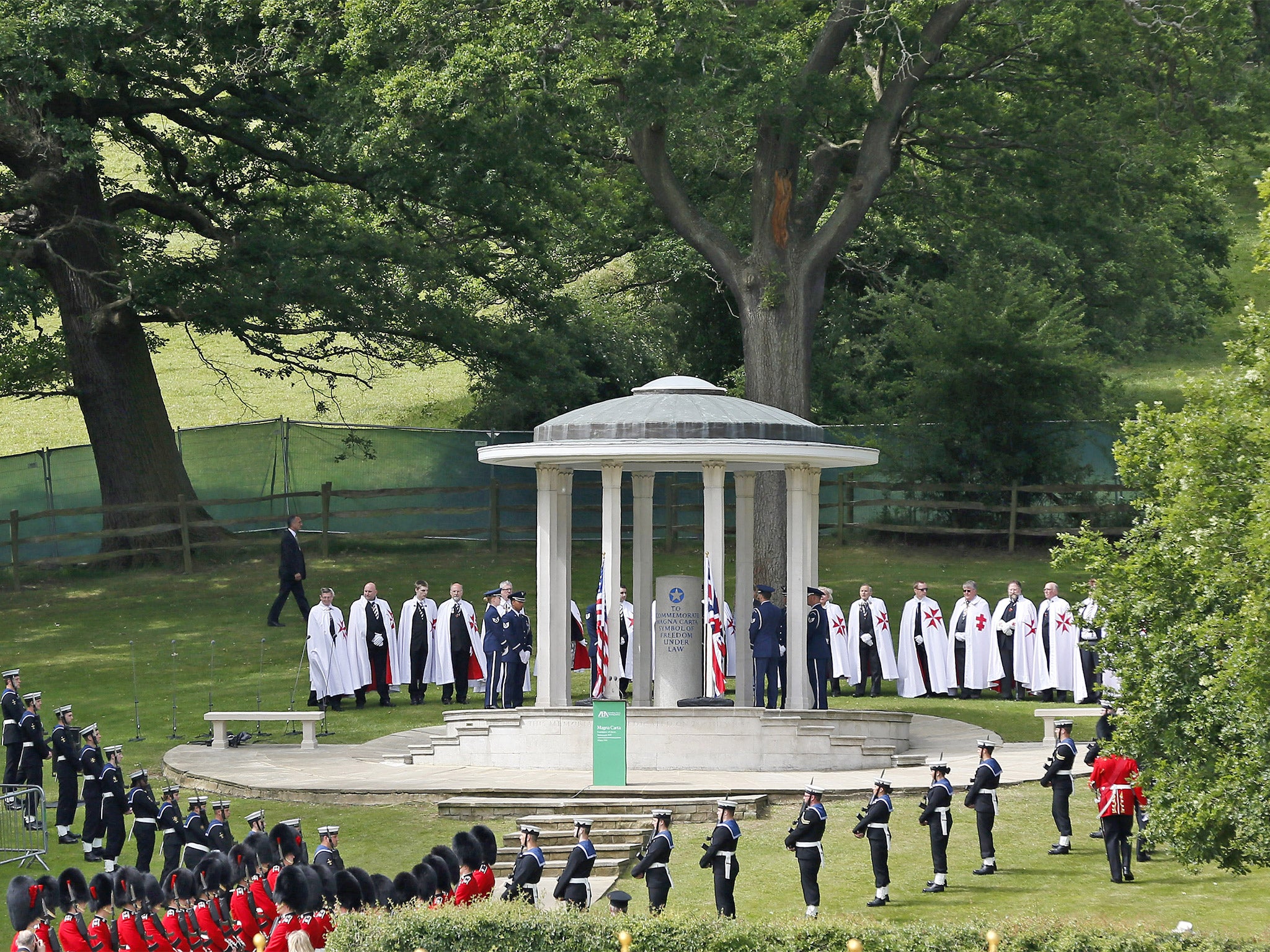Promoting human rights is not about who can shout the loudest
We are focusing on efforts that get tangible results

Our British democratic values have developed over time with human rights at their core. We are reminded of this fact this year as we mark the 800th anniversary of the Magna Carta, sealed at Runnymede in my constituency.
Human Rights Day – chosen by the UN General Assembly to mark the Universal Declaration of Human Rights – is a day when Britain, a key promoter of such rights and values, can hold its head high. This Government was elected on a manifesto commitment to protect human rights. We are doing that in three ways.
First, we are focusing on efforts which get tangible results. In some cases, where we have concerns, high-profile statements from ministers or ambassadors can be the right way to proceed. But that isn’t always the right course of action. Often, a different, more nuanced approach is more likely to yield results.
Quiet and continued engagement behind the scenes, nurturing a relationship and not being afraid to raise testing issues in private can sometimes achieve surprising results; lecturing people in public doesn’t always work, and can sometimes prove counter-productive. Just because the British Government isn’t shouting about an issue from the rooftops, doesn’t mean we aren’t assiduously pursuing a case in private. It will depend on how best we believe we can achieve the success or shift in circumstances that we seek.
We must be conscious of how our messages are interpreted, and pitch them for the impact we want.
Last month I visited Saudi Arabia, where I raised the case of Karl Andree – a British grandfather imprisoned and sentenced to a lashing. Within hours of my discussions in Riyadh, I was able to confirm that no corporal punishment would be carried out and that Mr Andree would be freed within days. This followed continuous, but quiet, engagement behind the scenes for months.
This was achieved through the strength and breadth of the bilateral relationship we have built with Saudi Arabia. But it might not have been, had a different approach been adopted. Our approach will be as varied as the individuals we are trying to convince, and the situations we are trying to change. That is the essence of effective diplomacy.
Second, we make most progress on human rights around the world when our approach appeals to others’ enlightened self-interest and is sensitive to their culture and history. In short, we have to persuade countries and governments that respecting human rights will be beneficial to them.
We do this strategically too, at the UN level, where we have helped enshrine the importance of rule of law, democracy and accountable institutions – what the Prime Minister has called the “Golden Thread” – in the UN’s new Sustainable Development Goals.
We make clear that human rights are a key part of building a level playing field – important as inalienable rights in themselves, but also as a precondition to security and global economic growth.
Our resilience against terrorism owes a great deal to our commitment to stand up for freedom of expression, freedom of religion or belief, and other human rights. This was evident in the moving demonstrations of solidarity following the November attacks in Paris.
Third, I have ensured that human rights sit within the everyday work of the Foreign Office. I do not believe this agenda should be the preserve of just a few, specialised staff. It should be – and is – the responsibility of all British diplomats.
Human rights expertise is an important part of the training our staff receive. Teams working in countries where we have particular concerns, and their colleagues in London, see human rights as an integral part of what we are trying to achieve with that country. This year the Foreign Office is supporting more than 75 human rights projects in more than 40 countries and we are continuing to pursue a pioneering approach to preventing sexual violence in conflict.
We were leaders on human rights in 1215, as the Magna Carta was sealed, and we remain leaders now in 2015.
As we promote and protect those standards across the world, we are approaching human rights diplomacy in our own, British way, to ensure we get the right results.
Philip Hammond is the Foreign Secretary and MP for Runnymede and Weybridge.
Join our commenting forum
Join thought-provoking conversations, follow other Independent readers and see their replies
Comments
Bookmark popover
Removed from bookmarks